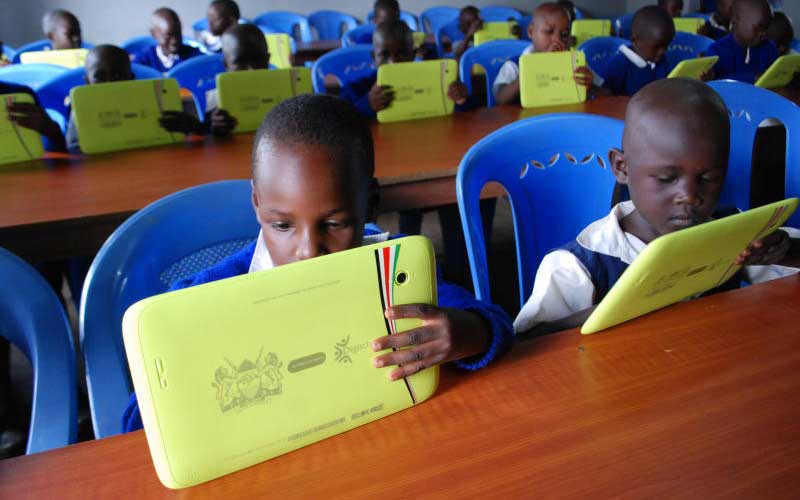×
The Standard e-Paper
Join Thousands Daily

Class One pupils at Getembe Primary school in Kisii during a past lesson in 2019. [File]
The government has bought and delivered tablets to 21,637 public primary schools at a cost of Sh30 billion to help children continue learning online.